Ambushed at Dawn: Bolivia's Coup Attempt
In the early hours of Wednesday, Bolivia was thrust into chaos as an unexpected and audacious coup attempt unfolded in its bustling political heart. The masterminds behind this bold, albeit short-lived, operation were led by rogue General Juan Jose Zuniga. A past commander of the armed forces, General Zuniga's decision to rebel seemed to arise from increasingly palpable frustrations brewing within certain factions of the military and civilian populations.
At the break of dawn, Zuniga's splinter group struck with military precision, capturing La Paz's central square and ramming an armored truck into the presidential palace’s fortified gates. The suddenness and ferocity of the attack sent shockwaves through the city, disrupting the daily life and plunging the nation into an immediate state of heightened alert. But as swiftly as terror gripped La Paz, a sense of resolve from the government forces equally swiftly quashed the rebellion.
Government Response and Aftermath
President Luis Arce, a leftist leader who inherited a nation replete with political complexities and economic downturns, acted decisively. His government quickly deployed loyal military and police units to confront the insurgents. The response was firm and efficient, demonstrating the state's preparedness for such seemly tactics of rebellion. Within hours, General Zuniga's plan crumbled. Witnessed by the nation on live television, he was arrested, marking an emphatic end to the attempted coup.
President Arce’s administration didn't waste time in claiming victory. Government spokespersons hailed this swift, successful suppression of the coup as a testament to the strength and stability of Arce’s leadership. Messages from the presidential palace reiterated that democracy would not bow to the whims of rogue elements, regardless of their past affiliations or military ranks.
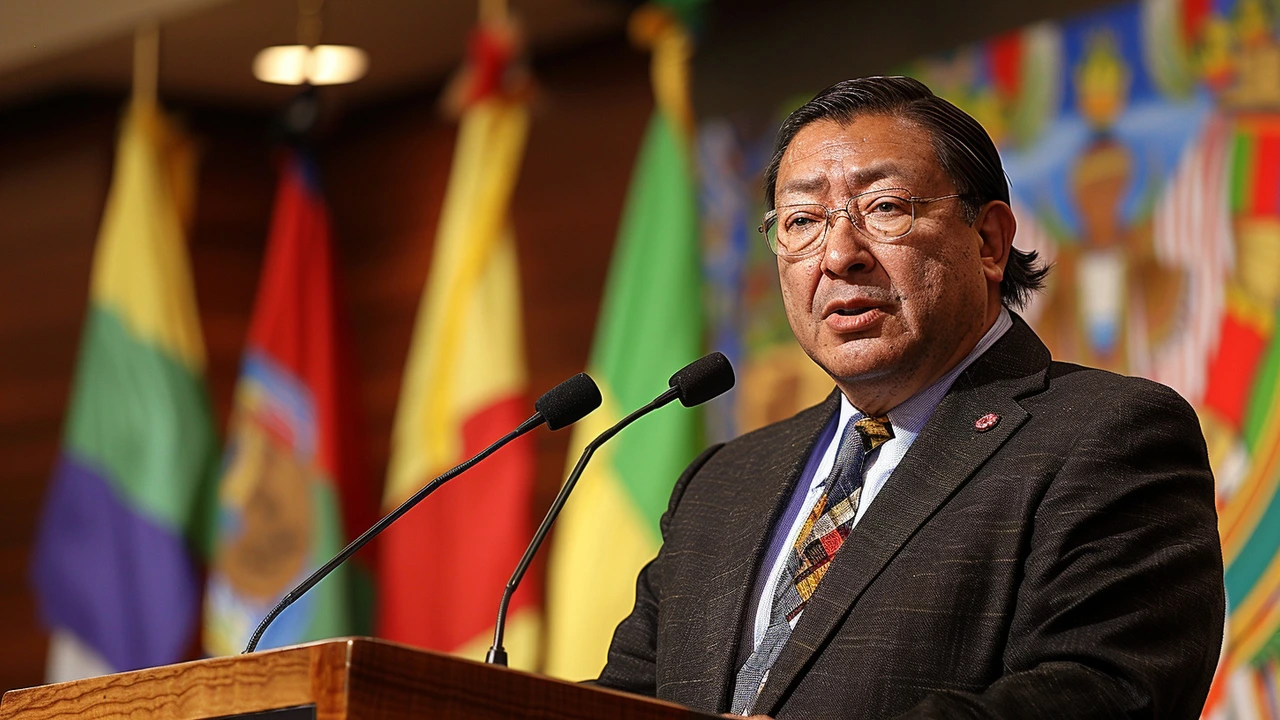
Deep-Rooted Political Divisions Exposed
Despite this immediate victory, the botched coup has unveiled deeper, more troubling fault lines within Bolivian society. Politically, Bolivia has long been a nation divided. While Arce’s leadership follows in the footsteps of his predecessor, Evo Morales, with a left-wing agenda that includes social programs aimed at poverty reduction and indigenous rights, this vision has not garnered unanimous support.
Many within the country, particularly in urban and upper-class circles, remain skeptical or outright opposed to these policies. They argue that economic mismanagement has exacerbated the country’s financial woes, including inflation and unemployment. The coup attempt, though unsuccessful, can be seen as a manifestation of these simmering tensions between the leftist government and its detractors within the military and civilian populace.
Economic Anguish Fuels Discontent
Economically, the attempted coup has drilled deeper into the issues that have been festering for years. Bolivia’s economy, which once enjoyed robust growth, has flagged recently. The global downturn affecting commodity prices, on which Bolivia's economy heavily relies, played a significant role. Natural gas exports, critical for the country's revenue, have faced price drops and demand fluctuations, squeezing the government's budget.
The economic strain transpires in the day-to-day lives of Bolivians. Rising unemployment, inflation, and reduced public spending are diminishing the quality of life for many. Citizens' trust in the government’s ability to manage the economy is waning. For those who joined or supported General Zuniga’s destabilizing efforts, these economic hardships provided a backdrop that turned them from critics to participants in rebellion.
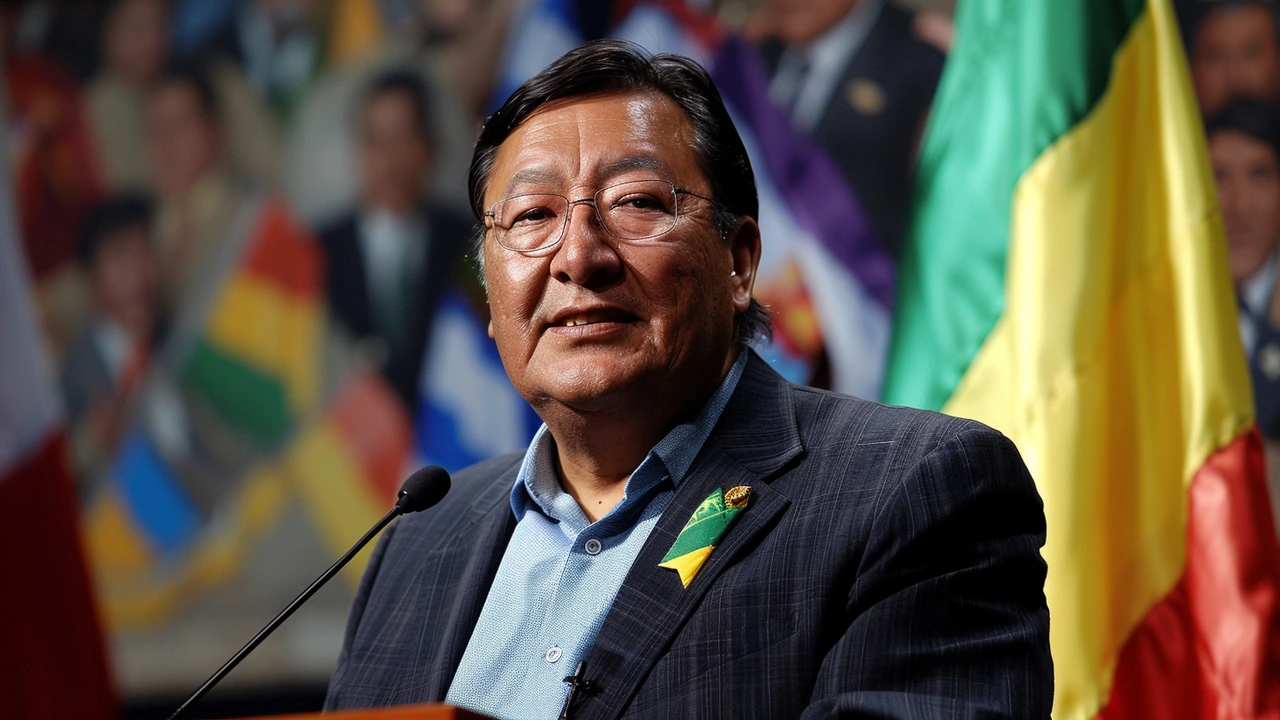
Future Stability at Risk
While the government can celebrate its quick response in neutralizing the coup attempt, the country’s future stability remains precarious. The fissures laid bare by General Zuniga’s actions cannot be mended with military might alone. Instead, a nuanced approach that addresses both political and economic grievances is essential. President Arce’s administration must now engage in active dialogue with opposition parties, civil society groups, and the military. This engagement must go beyond face-saving measures and enter into substantive negotiations aimed at forming a more unified national strategy.
Only by addressing the multifaceted causes behind the coup attempt can Bolivia hope to achieve lasting stability. The challenges ahead for President Arce are immense. He must navigate a complex political landscape while boosting an ailing economy – a delicate balancing act that will test his leadership and resilience.
Conclusion
The failed coup attempt is a sobering reminder of the volatile undercurrents within Bolivia. It underscores the need for a concerted effort to bridge the divides, heal the economic wounds, and foster a sense of national unity. Stability will not come easily, but with thoughtful governance and inclusive policies, there is hope that Bolivia can emerge stronger and more cohesive.

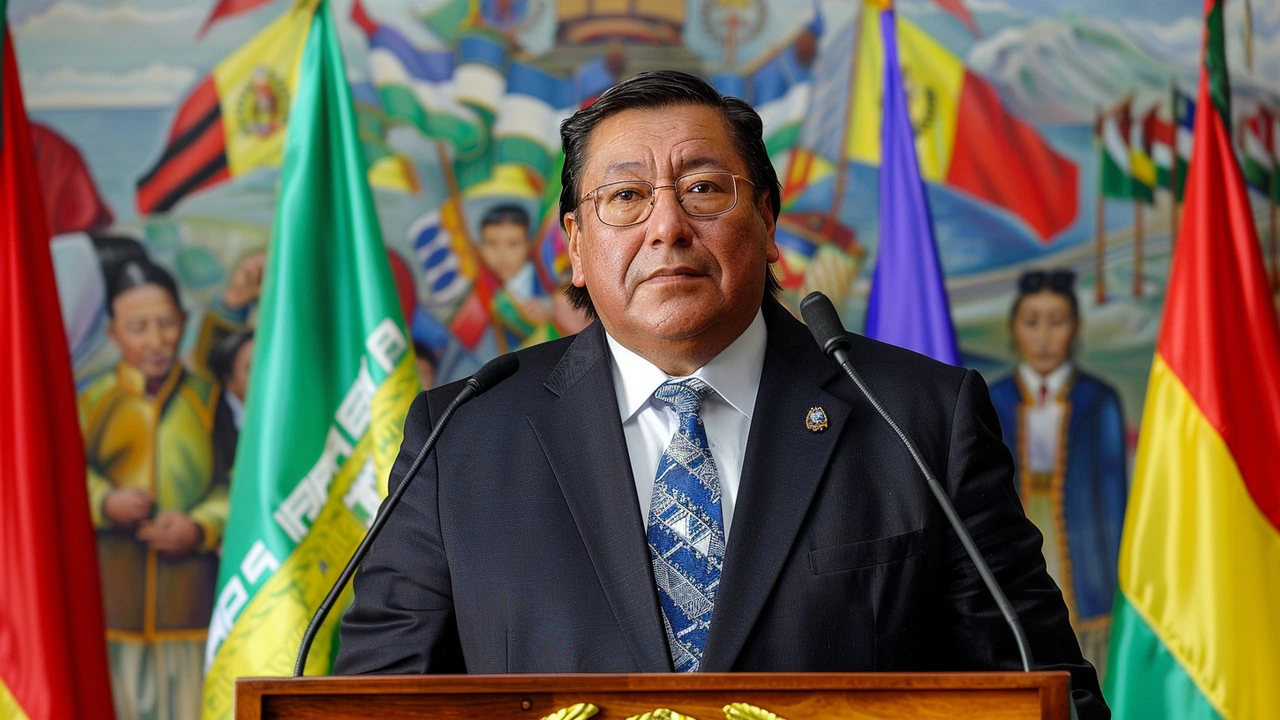
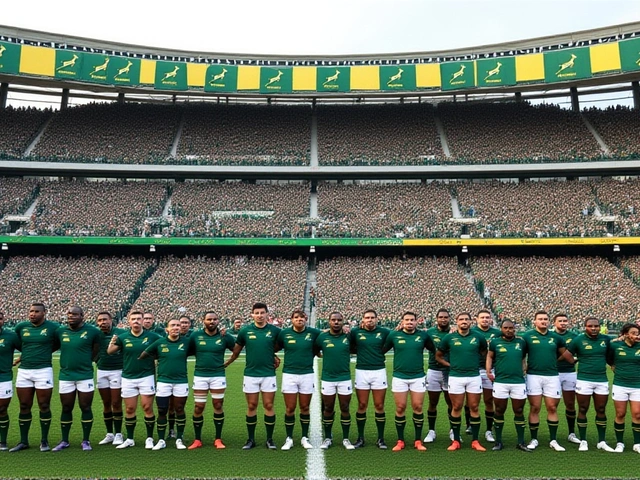
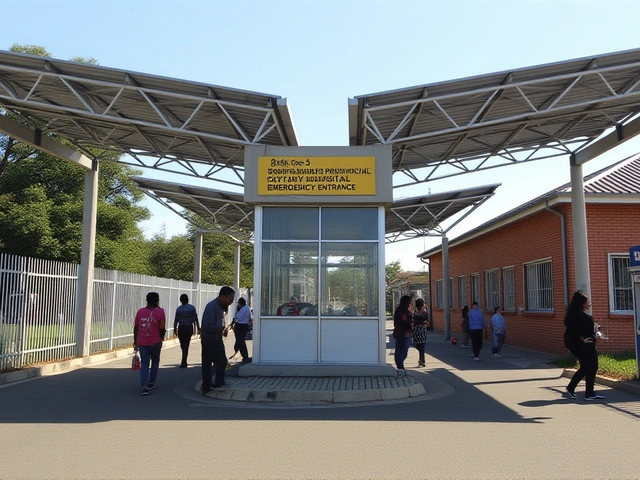
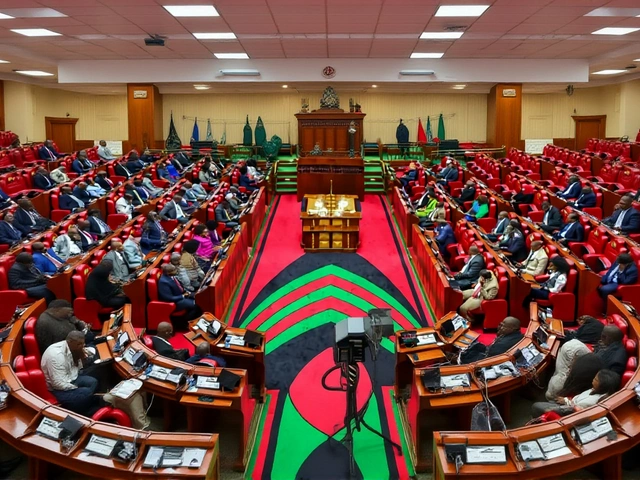

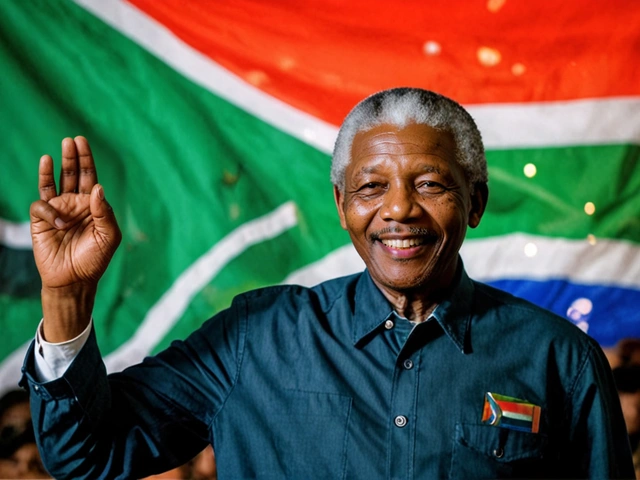
Comments
Deborah Canavan
June 29, 2024 AT 13:47 PMI mean, it’s wild how quickly things escalated, right? Like one minute you’re sipping coffee and scrolling through news, next thing you know there’s an armored truck parked outside the presidential palace. And honestly, the fact that it collapsed within hours says more about the loyalty of the rank-and-file soldiers than anything else. Most of them probably just wanted to go home and not get shot. The real story isn’t the coup-it’s how little support it actually had. People talk about deep divisions, but when it comes down to it, most folks just want stability, even if they don’t like the government.
Also, the media coverage felt so dramatized. Like, yes, it was dramatic, but it wasn’t some grand revolution. It was a poorly timed power grab by a guy who clearly overestimated his influence. The president’s team handled it with zero drama. No speeches, no panic, just cops and soldiers showing up and saying ‘hey, you’re coming with us.’ That’s the quiet strength of institutions that still work.
Thomas Rosser
July 1, 2024 AT 06:29 AMLMAO they said it was a 'coup attempt' but did anyone check if the US funded this? 😏
Let me guess-Zuniga was a CIA asset who got cold feet and tried to make it look like a real rebellion so they could justify another 'democracy intervention'. The timing? Too convenient. Right after the IMF announced new austerity measures. The military response? Too smooth. Like they were waiting for it. And don’t even get me started on how fast Arce’s team spun it as a 'victory for democracy'.
Wake up. This was a staged false flag to justify cracking down on dissent. The real coup was the one that happened in 2019 when Morales got ousted. This? Just a rerun with better lighting and a different villain.
Joshua Johnston
July 2, 2024 AT 03:25 AMWhat’s interesting here isn’t the coup attempt-it’s how little it actually changed anything. The structure of power didn’t shift. The same elites are still in control. The same economic models are still crushing people. The military didn’t turn on the state; they just did their job. And the president? He didn’t lead-he reacted. That’s not strength, that’s just institutional inertia.
Real leadership would’ve been preventing this. Not by arresting one general, but by addressing why so many in the military felt so alienated. Why are they so disconnected from the people? Why does the economy keep failing the same groups? This wasn’t a rebellion. It was a symptom. And we’re treating the symptom like the disease.
And honestly? The whole 'democracy triumphs' narrative is just propaganda. Democracy isn’t about who wins the shootout. It’s about whether people feel like they have a voice. And right now, in Bolivia, most of them don’t.
Kerry Keane
July 3, 2024 AT 15:59 PMso like the army just showed up and arrested him like it was nothing? wow. i thought this was gonna be some epic battle but nope. just a guy with a plan that didnt work. kinda sad honestly. the economy is a mess and people are desperate but instead of fixing stuff they just arrest the guy who tried to do something. what a system.
Elliott martin
July 3, 2024 AT 19:50 PMI keep thinking about the soldiers who showed up to stop the coup. Were they loyal to the president? Or just loyal to the idea of order? Because if it was the latter, then this could’ve gone either way depending on who showed up with the bigger guns. And what about the ones who didn’t show up? Were they scared? Or did they agree with Zuniga? The article doesn’t say.
Also, the economic stuff. Natural gas prices dropping. That’s global. But the blame lands on Arce. Why? Because he’s the face of it. But the policies that made Bolivia dependent on gas? That was decades of decisions. Not just his. I wonder if anyone’s even talking about diversifying the economy. Or is everyone just waiting for the next crisis?
Shelby Hale
July 5, 2024 AT 13:17 PMOH MY GOD. A MILITARY GENERAL RAMMING A TRUCK INTO A PALACE. LIKE. THIS IS THE BEST THING TO HAPPEN TO BOLIVIA SINCE THE INCA EMPIRE. I’M CRYING. I’M CLAPPING. I’M BUYING A T-SHIRT THAT SAYS ‘I SURVIVED THE ZUNIGA UPRISING’.
And then-BAM-President Arce just… showed up? With a coffee in one hand? And said ‘you’re under arrest’? Like he was telling a kid to stop drawing on the walls? This isn’t a coup. This is a Netflix limited series waiting to happen. I need the soundtrack. I need the slow-mo. I need the dramatic zoom on Zuniga’s face as he realizes his life is over.
Also, who’s the villain? The general? Or the guy who made the economy suck so bad that this seemed like a good idea? I’m confused. I need a therapist.
Jeffrey Frey
July 6, 2024 AT 14:17 PMThis is what happens when you let socialist ideologues run a country that’s never been stable. Zuniga wasn’t a rogue general-he was the only sane person left. The economy is in shambles, the people are starving, and Arce’s government is too busy handing out subsidies to their cronies to notice the country’s collapsing. The coup was a mercy killing.
And now they’re calling it a ‘victory for democracy’? LOL. Democracy doesn’t mean ‘we arrest the guy who tried to fix things’. It means you listen to the people. The people wanted change. Zuniga gave them a shot. The government gave them silence and more inflation.
Next time, don’t expect a truck to ram the palace. Expect a million people in the streets. And this time, the army won’t be on your side.
Jeremy Ramsey
July 8, 2024 AT 06:07 AMSo… let me get this straight. A general tries to overthrow the government by driving a tank into a building, gets arrested in under 6 hours, and now everyone’s acting like this was some kind of moral victory?
Look, I get it. The president’s team looked cool on TV. But this whole thing feels like a sitcom. Like, ‘oops, we forgot to lock the gate, here’s a guy with a truck, here’s the cops, here’s the arrest, roll credits.’
Meanwhile, the real story is that Bolivia’s economy is a ghost town and half the country thinks the government is rigged. No one’s talking about that. Everyone’s talking about the truck. Classic. We’re all just watching the fireworks and ignoring the house on fire.
Also, can we talk about how weird it is that the military’s loyalty just… works? Like, in the US, if someone did this, half the army would be filming it for TikTok. In Bolivia, they just… showed up and did their job. That’s either a good thing… or a terrifying one.